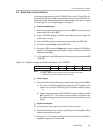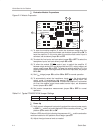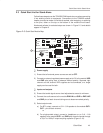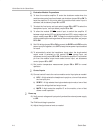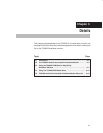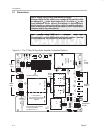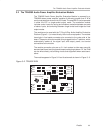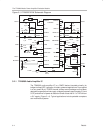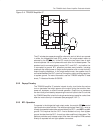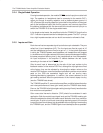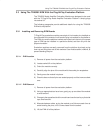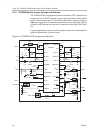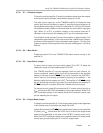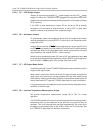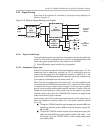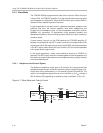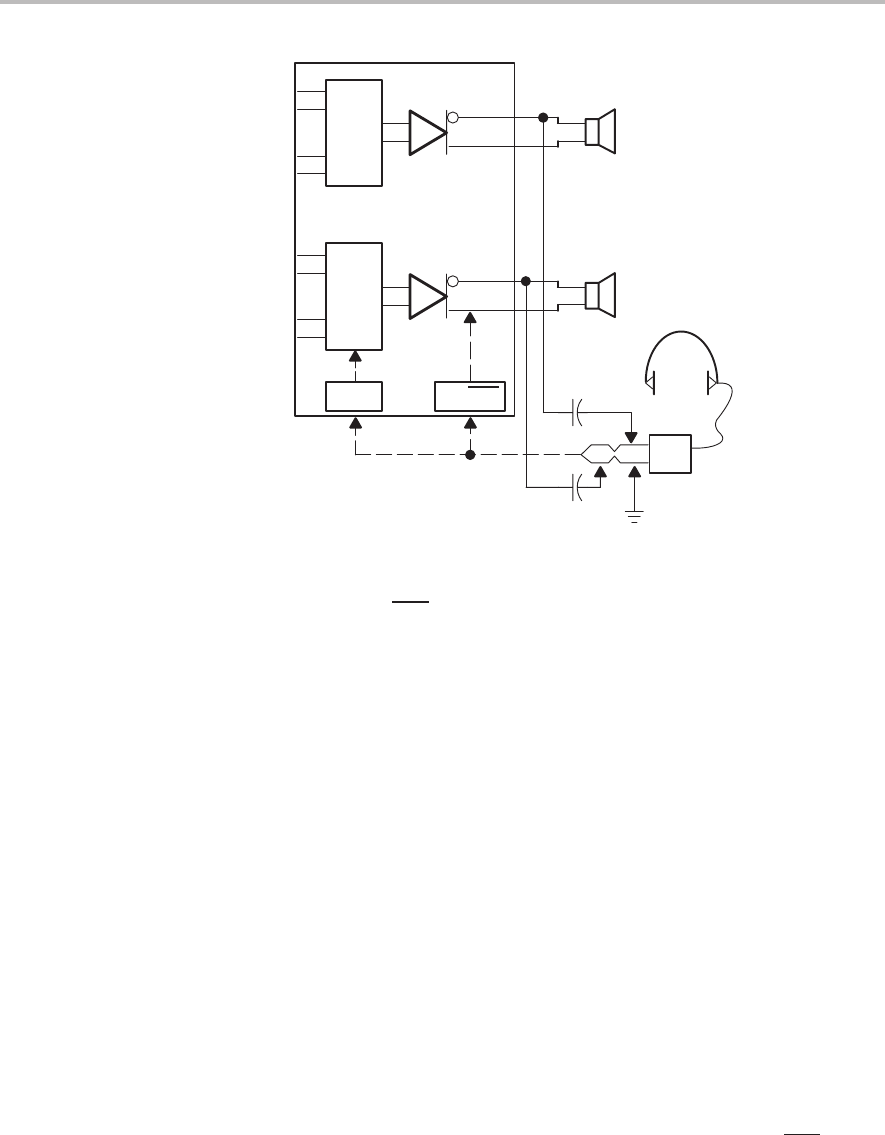
The TPA0202 Audio Power Amplifier Evaluation Module
3-5
Details
Figure 3–4. TPA0202 Amplifier IC
MUX
MUX
SE/BTL
MUX
The IC includes two separate amplifier channels, each of which can operate
in either the bridged-tied load (BTL) mode or the single-ended mode as
selected by the SE/BTL
pin. In the BTL mode, the two output lines of each
channel operate 180° out-of-phase with each other for increased power. The
speaker load is connected directly across OUT+ and OUT–, and neither line
is connected to ground. BTL operation provides many benefits, including
quadruple the output power of single-ended operation and no need for bulky
output coupling capacitors. In the single-ended mode, the speaker load is
connected between the OUT+ terminal, through an output coupling capacitor,
to system ground. For more information, see the TPA0202 amplifier IC data
sheet, TI Literature Number SLOS205.
3.2.2 Depop Circuitry
The TPA0202 amplifier IC contains internal circuitry to minimize the various
turn-on transients that might appear at the output during the transition from
power off, shutdown, or mute to normal operation. Output turn-on transients
can be virtually eliminated by sequencing the control inputs to the IC such that
the TPA0202 amplifier is held in the single-ended output mode for a short time
after the mute control pin is released (see paragraph 3.3.2.7).
3.2.3 BTL Operation
To operate in the bridge-tied load output mode, the module SE/BTL control
input terminal must be held low. The module output signal from OUT+ must go
through the speaker load and be returned directly to OUT–, and
NOT
to system
ground. This requires that the OUT– line be isolated not only from system
ground, but also from the OUT– lines of any other amplifiers in the system. The
platform provides such isolated output lines from the amplifier EVM sockets
directly to separate left and right speaker connectors.



